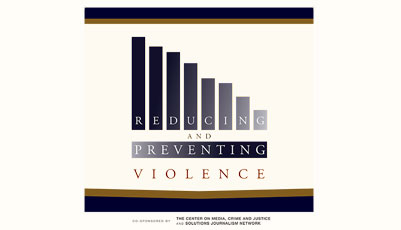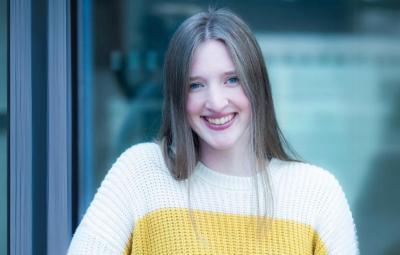
New York, NY, September 18, 2015 – The Center on Media, Crime and Justice (CMCJ) at John Jay College of Criminal Justice has selected 27 journalists as Reporting Fellows for a special year-long project aimed at strengthening reporting on solutions to the problem of violence in America.
The fellowship program, sponsored by the Solutions Journalism Network, will be launched Monday, September 21st and Tuesday, September 22nd 2015 with a symposium at John Jay College of Criminal Justice in New York City, entitled Reducing and Preventing Violence: Strengthening Reporting About What Works.
Speakers at the workshop include: Jelani Cobb, Staff Writer at The New Yorker and Associate Professor of History and Director of the Africana Studies Institute at the University of Connecticut; Cathy Spatz Widom, Distinguished Professor in the Department of Psychology at John Jay College; Arthur C. Evans, Jr. Commissioner of Philadelphia Department of Behavioral Health and Intellectual disability Services; and Jack Glaser, Associate Dean, Goldman School of Public Policy at University of California, Berkeley.
“Too often in the heat of covering tragic stories, journalists have little time or space to concentrate on the innovative programs and best-practices that are aimed at preventing violence or attacking its roots,” said Stephen Handelman, Director of the CMCJ. “We hope this project will give reporters additional tools to cover solutions as well as problems.”
The project is supported by the Robert Wood Johnson Foundation.
2015 John Jay/Solutions Journalism Network Fellows
(in Alphabetical Order)
Susie An WBEZ Chicago
Kelly Byer The Repository
Mike Carter Seattle Times
J. Brian Charles Freelancer, Louisiana State University
Robin Erb Detroit Free Press
Penny Ray The Trentonian
Susan Ferriss Center for Public Integrity
Amy Friedenberger The Roanoke Times
David Gambacorta The Philadelphia Daily News
Hannah Garcia Law Week Colorado
Suzette Hackney Indianapolis Star
Dee Hall Wisconsin Center for Investigative Journalism
Dan Ivers NJ Advance Media
Jason Kane PBS Newshour
Donna Ladd Jackson Mississippi Free Press
Ashley Luthern Milwaukee Journal Sentinel
Thomas Macmillan Wall St. Journal
Christopher Peak NationSwell NYC
Nicole Santa Cruz LA Times
Amelia Schonbek Freelance NYC
Sarah Stillman The New Yorker
Anne Sweeney Chicago Tribune
Krista Torralva Corpus Christi Caller-Times
Armando Trull WAMU Washington, D.C.
Jill Tucker San Francisco Chronicle
Linn Washington Temple University
Spencer Whitney San Francisco Chronicle
About John Jay College of Criminal Justice, An international leader in educating for justice, John Jay College of Criminal Justice of The City University of New York offers a rich liberal arts and professional studies curriculum to upwards of 15,000 undergraduate and graduate students from more than 135 nations. In teaching, scholarship and research, the College approaches justice as an applied art and science in service to society and as an ongoing conversation about fundamental human desires for fairness, equality and the rule of law. For more information, visit www.jjay.cuny.edu.
The Center on Media, Crime and Justice, established at John Jay College in 2006, is the nation's only practice- and research-oriented think tank devoted to encouraging and developing high-quality reporting on criminal justice, and to promoting better-informed public debate on the complex 21st century challenges of law enforcement, public security and justice in a globalized urban society. For more information, visit http://www.jjay.cuny.edu/cmcj or www.thecrimereport.org
Solutions Journalism Network, Solutions journalism is rigorous and compelling reporting on responses to social problems. The Solutions Journalism Network is increasing the volume and quality of solutions journalism through our online learning platform, journalism development, and community-building activities. See www.solutionsjournalism.org for further details.
The Robert Wood Johnson Foundation, The Robert Wood Johnson Foundation is the nation’s largest philanthropy dedicated solely to health. Since 1972, we have worked to identify the most pressing health issues facing America. We believe that good health and health care are essential to the well-being and stability of our society and the vitality of our families and communities. Our work is guided by a fundamental premise: We are stewards of private funds that must be used in the public’s interest. Together with our grantees and collaborators, we strive to bring about meaningful, lasting change—with the goal of building a Culture of Health that enables all in our diverse society to lead healthier lives, now and for generations to come.



